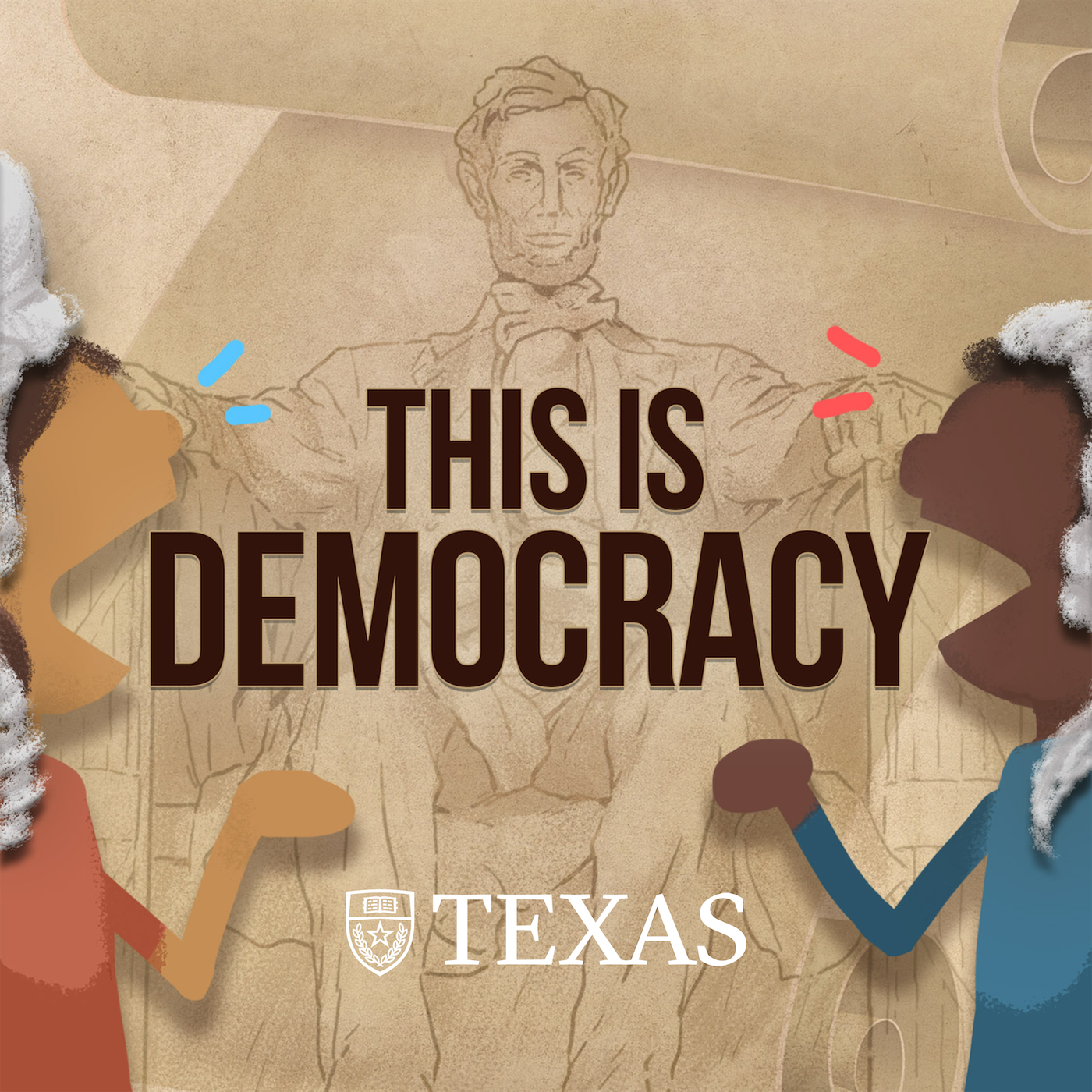

This is Democracy
This is Democracy
The future of democracy is uncertain, but we are committed to its urgent renewal today. This podcast will draw on historical knowledge to inspire a contemporary democratic renaissance. The past offers hope for the present and the future, if only we can escape the negativity of our current moment — and each show will offer a serious way to do that! This podcast will bring together thoughtful voices from different generations to help make sense of current challenges and propose positive steps forward. Our goal is to advance democratic change, one show at a time. Dr. Jeremi Suri, a renown scholar of democracy, will host the podcast and moderate discussions.
Episodes
Mentioned books

Sep 6, 2019 • 0sec
This is Democracy – Episode 55: Unions and Democracy
In this episode, Jeremi discusses unions with Yvonne Flores, President of AFSCME Local 1624, and Jackie Jones, the Chair of the Department of History at UT, to discuss unions.
Zachary sets the scene with his poem, “Images of Madison 2011.”
Yvonne Flores is the President of the American Federation of State, County, and Municipal Employees AFSCME Local 1624 Representing the City of Austin and Travis County employees.
Jackie Jones is the Chair of the Department of History at UT, and the Incoming President of the American Historical Association, and a Leading Expert on the history of unions in the United States.

Aug 27, 2019 • 0sec
This is Democracy – Episode 54: Environmental Activism Among Young People
Jeremi sits down with Matthew Kim and Councilwoman Alison Alter to discuss climate change activism among America’s youth.
This week, Zachary kicks off the episode with his poem, “The Only Ones.”
Matthew Kim is a junior in high school and the president of the Austin chapter of Students for Climate Action and a member of the Austin Youth Council.
Alison Alter was elected in 2016 as the City Council representative for District 10 in Austin, Texas.

Aug 20, 2019 • 0sec
This is Democracy – Episode 53: Back to School
In this episode, Jeremi and Zachary are joined by Natalie Suri. The trio talks about what it means to be a student today, and how school is changing.
Zachary reads his poem, “Ode to My School.”

Aug 15, 2019 • 0sec
This is Democracy – Episode 52: Hong Kong’s Democracy Movement
In this episode, Jeremi and Zachary are joined by Shery Chanis. The trio talk about the protests and current happenings in Hong Kong.
Zachary presents his poem, “Hanging Between.”
Shery Chanis is a Ph.D. Candidate in the Department of History at the University of Texas at Austin. She is completing her dissertation on the identity formation of the southern maritime province of Guangdong in the sixteenth and seventeenth centuries. Hong Kong is her hometown.

Aug 6, 2019 • 0sec
This is Democracy – Episode 51: Gun Violence in America
This week Jeremi and Zachary sit down for an extended discussion on gun violence in America with two guests, Hilary Rand Whitfield and Ed Scruggs.
Zachary’s poem for the week is simply titled, “So Many.”
Hilary Rand Whitfield is a volunteer state leader for the Texas chapter of Moms Demand Action for Gun Sense in America. Stay-at-home mother of 2 (16yo boy and 13yo girl), and Austin resident for the last 12 years.
Ed Scruggs is a Realtor, Community Organizer, former journalist and 27 year Austin resident who ran for Austin City Council in 2014. He is currently an appointed member of the City of Austin’s Public Safety Commission. Ed joined the board of Texas Gun Sense in 2015 and currently serves as Vice Chair and Media Representative.

Jul 24, 2019 • 0sec
This is Democracy – Episode 50: British-American Relations: Past and Future
Jeremi sits down in an English pub with Professor Charlie Laderman to discuss British-American relations and their effects on the two democracies.
Dr. Charlie Laderman is a lecturer in international history at King’s College, London. He received his Ph.D. from the University of Cambridge, and his new book is: Sharing the Burden: Armenia, Humanitarian Intervention and the Search for an Anglo-American Alliance, 1895-1923 (Oxford University Press.)

Jul 19, 2019 • 0sec
This is Democracy – Episode 49: Guernica and the Bombing of Civilians
Zachary sits down with Jeremi and Natalie to discuss the Bombing of Guernica. The trio touch on Picasso’s Guernica and other related pieces of history.

Jul 17, 2019 • 0sec
This is Democracy – Episode 48: Spanish Civil War: History and Legacies
Zachary sits down with Jeremi to discuss George Orwell’s 1938 memoir, Homage to Catalonia, and its accounts of the Spanish Civil War, particularly those in Barcelona.

Jul 10, 2019 • 0sec
This is Democracy – Episode 47: Government and Creativity in the Renaissance
Jeremi sits down with Zachary and Natalie Suri first in Siena and then Florence, Italy to discuss the Renaissance and republicanism in these historic former city-states.

Jul 3, 2019 • 0sec
This is Democracy – Episode 46: Ancient Government and its Legacies
Jeremi sits down with Alessia Morigi in Rome, Italy, to discuss the origins of democracy and its influences into democracy today.
Professor Alessia Morigi is an Associate Professor in Greek and Roman Archeology at the University of Parma, Italy.


